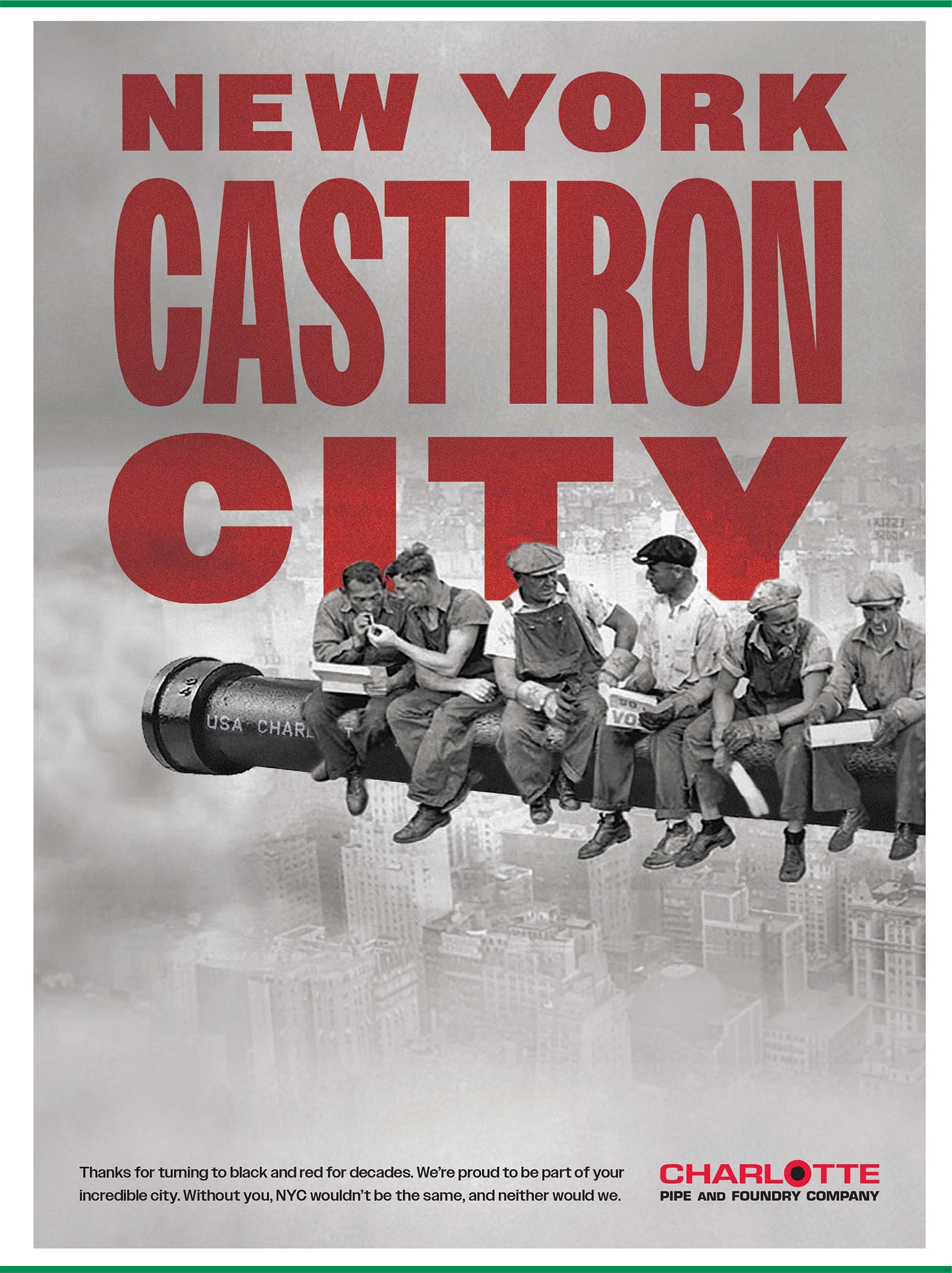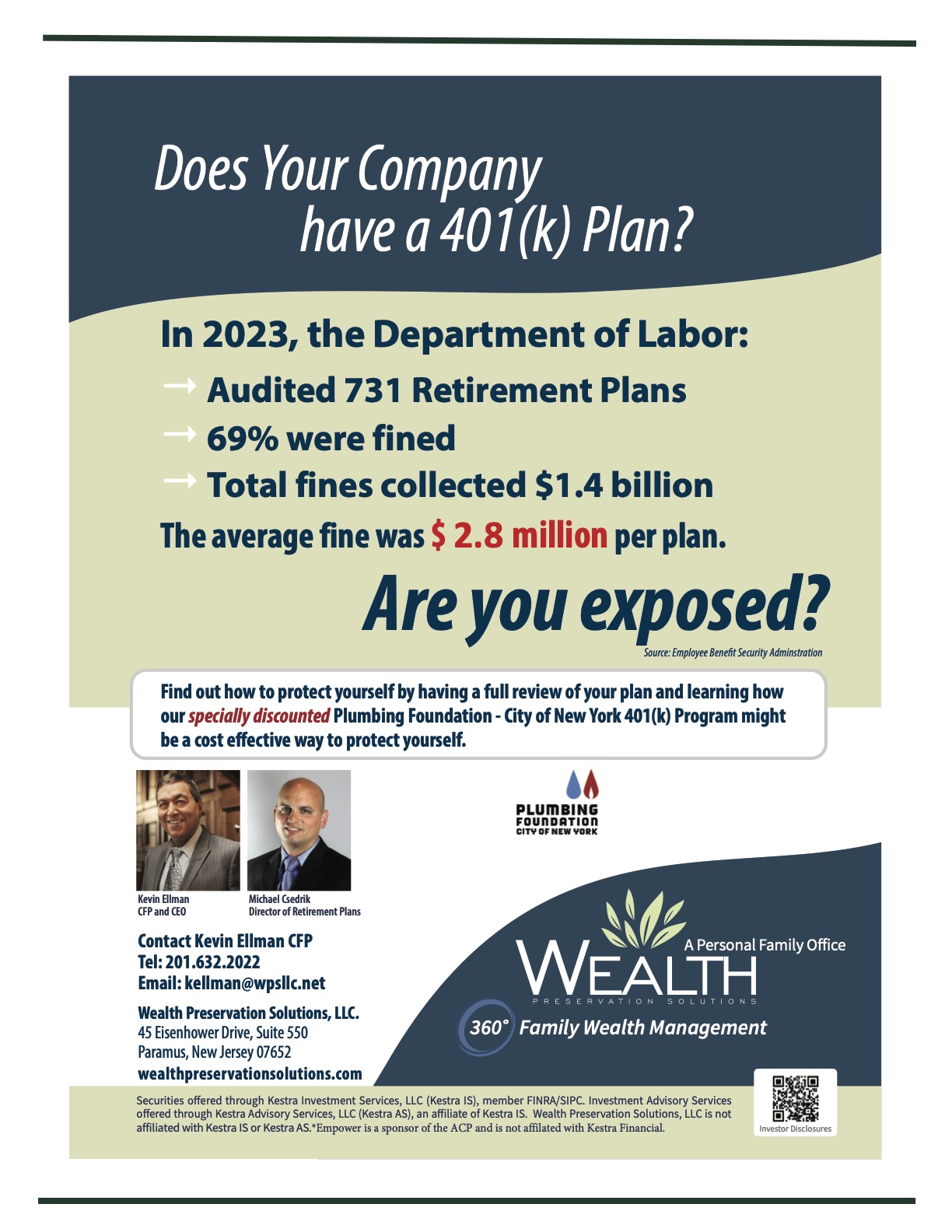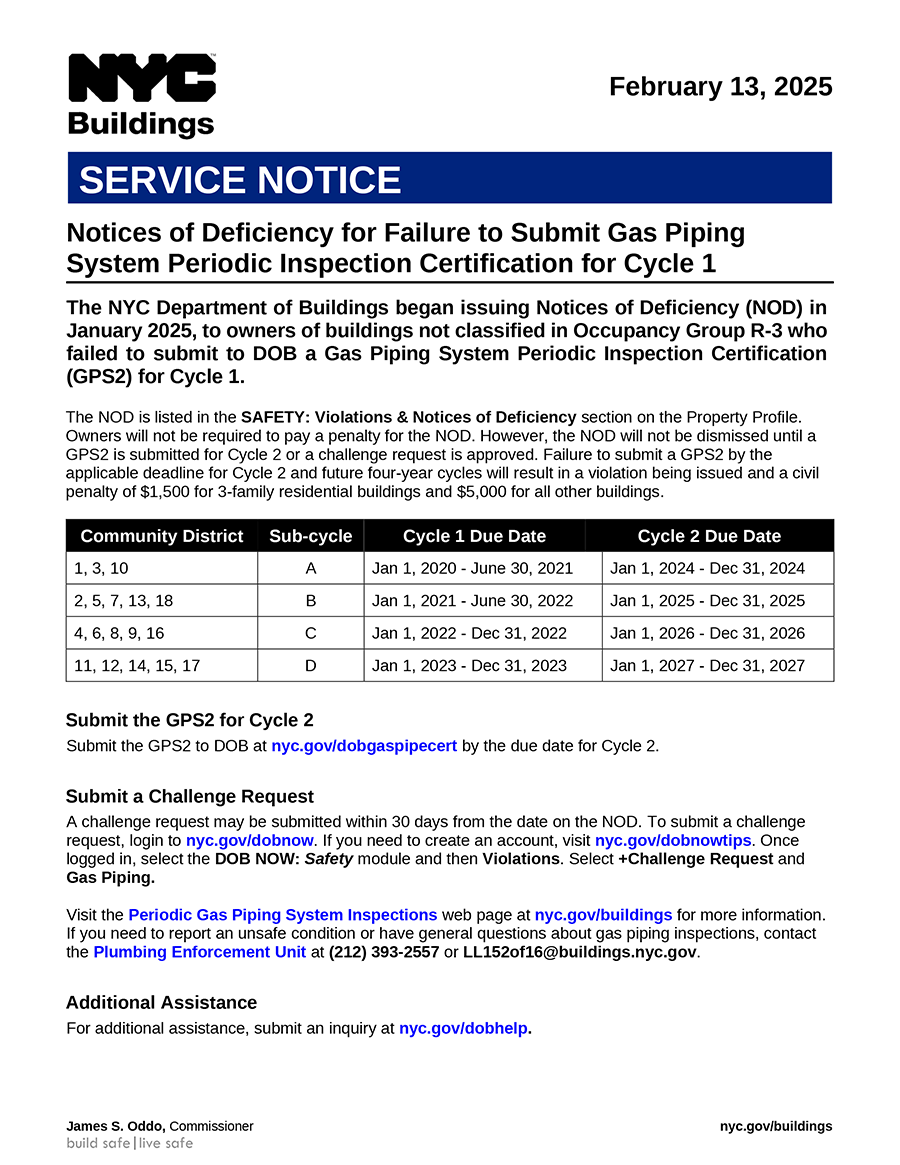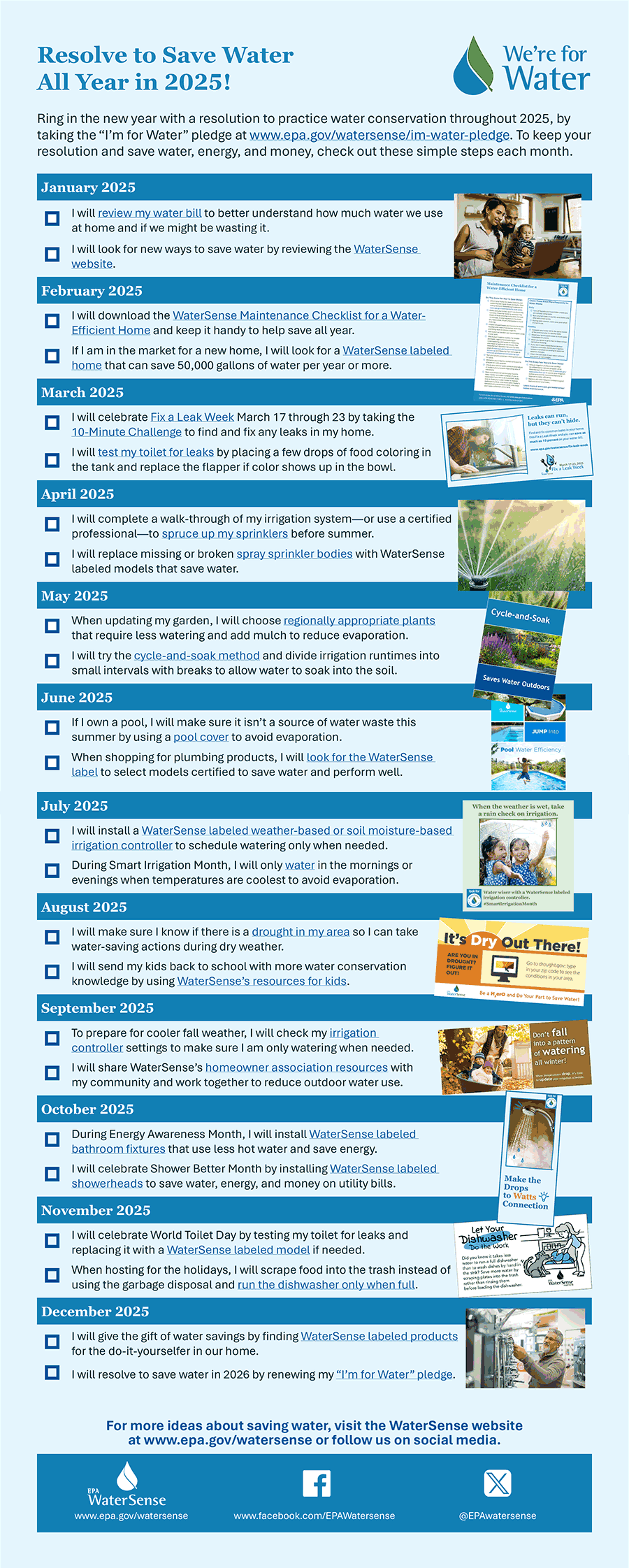Since 1962, the most reliable source of information on NYC’s plumbing industry.
Pipecaster Issue 1: Vol. 48
Click here for a PDF version of this issue of Pipecaster
Op-Ed: New York’s Con Edison Crisis is Far From Over
By APRIL MCIVER, ROCCO J. LACERTOSA and KRIS DELAIR
Originally published in the NY Daily News on March 7, 2025
With Con Edison proposing new rate increases, millions of New Yorkers will be paying close to $2,000 more each year in energy costs, another serious blow to our ever-shrinking wallets in the name of green energy. Con Edison has stated the hikes are necessary to meet the new demands on its citywide system — and we would agree.
Over the next decade, New Yorkers should brace for a steady wave of rising energy costs as new infrastructure will be needed to fulfill the all-electric construction edict enacted here. Starting in 2024, no natural gas hookups were permitted in new construction and major renovations in New York City, and that has placed a major strain on the system. Nearly 6,000 permits were issued for new buildings last year alone, and that number is certain to rise as more and more companies choose to mandate on-site work schedules.
New York’s power grid was not designed to handle an all-electric city, and such a massive conversion would require years of careful design, planning and collaboration among industry stakeholders. None of that happened when our elected officials implemented the gas ban — without proper industry input — and therefore, they set the stage for the pricing drama we are seeing unfold today.
Natural gas provides power for electricity, and this is the case for 38% of all electricity in the United States. In New York, that number is much higher where approximately 65% of electricity is produced by fossil fuels, the cleanest and most efficient being natural gas. Experts have long predicted that prohibiting new gas hookups will lead to significant socio-economic challenges and electric power supply concerns, and unfortunately, we are now seeing the first local evidence of this.
Creating healthier spaces is an important goal, and our members are committed to reducing our environmental impact with more sustainable materials and methods. Yet leaping to an all-electric mandate without the right infrastructure is an economic disaster waiting to happen, and this new electrical rate increase — up to 11.4% per household— is the first of many financial jolts to our personal budgets.
In response, Gov. Hochul has called for the state Public Service Commission to reject the rate increase. That’s a good start, but the real culprit lies within the city’s well-intentioned but misguided green energy push that outlawed the use of natural gas. We suggest a more reasonable, more realistic approach that acknowledges both the importance of sustainable building and the need to slow the drive toward green energy so we can ensure our infrastructure is adequately equipped.
We call for the following four steps:
- A temporary suspension of the city’s gas ban to prevent future rate increases;
- A creation of a citywide task force of public and private industry leaders to study the feasibility, impact and timeline for all-electric implementation;
- A presentation of the task force’s findings in a series of public hearings; and
- A pledge to explore the use of alternative fuels — such as biodiesel — for building heating options that can help meet the city and state’s clean energy goals.
Naturalgas is our most abundant fuel and we need it to protect the essential elements of our society. For example, the state just approved an expansion of the 414-mile Iroquois gas pipeline because other power sources, such as wind, solar and hydro, are not presently viable on any large scale. In the event of another citywide emergency, the impact on the electric grid may mean there will be no redundant heating and cooking source, leading to an unprecedented catastrophe.
The city also must continue to explore the use of biofuels, which offer a low- cost solution for decarbonization and are being deployed to reduce emissions in buildings and vehicle fleets — including the Staten Island Ferry. Biofuels, which are manufactured domestically from vegetable oils and recycled restaurant grease, have been deployed for the past decade and can be expanded immediately in homes and businesses using existing heating systems.
The need for a real conversation on natural gas and biofuels has never been greater, but that dialogue must be based on science, facts and feasibility, not pure politics. We are urging our elected leaders to meet us at the table — so we can learn from this current crisis and prevent one that is even more dire.
Our wallets — and our lives — depend on it.
McIver is the executive director of the Plumbing Foundation, City of New York, a non-profit association representing licensed contracting firms, engineering associations, manufacturers and suppliers. Lacertosa is CEO of the New York State Energy Coalition, Inc. DeLair is the executive director of the Empire State Energy Association, Inc.
Plumbing Foundation Advocates in Albany
The Plumbing Foundation’s Executive and Senior Directors headed to Albany this past February 10 and 11, not surprisingly on a couple of chilly days. Led by their lobbyists at Catalyst Government Relations, they met with New York State Senators and Assemblymembers to discuss the Plumbing Foundation’s state legislative agenda for 2025, which included items from Governor Kathy Hochul’s proposed budget. The Foundation expressed support for thermal energy and hydrogen legislation as well as reforms to insurance including workers compensation to ensure more equitable treatment of employers for wear & tear claims.
The Foundation also advocated for its modular construction legislation, sponsored by Assemblyman Erik Dilan (District 54 – Brooklyn) and Senator Jessica Ramos (District 13 – Queens), which requires New York City modular construction projects to comply with the NYC Building Code licensing standards, regardless of where the modular components are made. That legislation passed both houses in 2022 but was vetoed in December of that year along with hundreds of other bills. The veto memo cited two main points that were, frankly, erroneous; the first included a “potential” impact on affordable housing which we do not believe will be at any meaningful level—there also has been zero reliable sources proving that it would be. The second was the notion that the NYC Department of Buildings (DOB) is already enforcing this requirement. The industry knows the history of modular construction projects in New York City and the DOB’s refusal to enforce licensing standards but rather allow a flawed third-party certification process by any architecture or engineering firm, which tends to be from, according to a Freedom of Information Law (FOIL) request the Foundation conducted, outside of New York. The veto memo also seemed more concerned with out of state contractors over the need for jobs by New York’s own residents and local businesses.
The Foundation once again opposed the NY Home Energy Affordable Transition (HEAT) Act, as it did in 2024 when Governor Hochul introduced a version known as the Affordable Gas Transition Act in her budget (but which was was not adopted in the final budget last year and fortunately was not proposed in her budget this year). Among its provisions, the act proposes to eliminate the 100- foot rule whereby utility companies subsidize new gas hookups. The Plumbing Foundation and similar stakeholders across the state have been in opposition to this bill as this is one of many attempts to speed up the process to get rid of natural gas to reach the goals of the NYS Climate Leadership and Community Protection Act (CLCPA). The CLPCA is already on a too ambitious timeline and the state has not properly considered a more reasonable “all the above” approach and rather has been too focused on solar and wind energy, which are not widely available. To quote a 2025 National Fuel memo on the NY HEAT Act, “[t]he CLCPA does not mandate discontinuance of the natural gas system, and the continued operation of a modernized natural gas system paired with low- and no-carbon fuels, hybrid heating and weatherization is entirely consistent with attainment of the statute’s emission reduction goals. Indeed, use of a decarbonized natural gas system will be necessary to achieve these reductions in a responsible way that ensures the continued reliability, resilience and affordability of energy in the State.”
The Foundation’s legislative agenda also included opposition to the Bucks for Boilers Act (banning gas on all buildings above and beyond the 2022 gas ban on new construction) and the Scaffold Law (strict liability for owners and their agents for fall- related accidents). The Executive and Senior Directors met with legislators from New York City as well as some outside the Big Apple who sit on the Labor Committees in which our modular bill awaits approval. Overall, the meetings were very positive as the elected officials were receptive to the logical and well-thought out agenda. Some of the members that the Foundation met included: Assemblymember Erik Dilan (District 54, Part of Brooklyn), Sen. Jack Martins (R, 7th District, Part of Nassau County), Assemblymember Ed Ra (R, District 19, Part of Nassau), (D, 61st District, Buffalo area) (Labor Committee), Assemblymember Steven Raga (D, District 30, Part of Queens) (Labor Committee), Assemblymember Harry Bronson (D, District 138, Rochester area) (Chair of Labor Committee), Sen. Chris Ryan (D, 50th District, Syracuse area) (Labor Committee), Senator Mario Mattera (R, 2nd District, Part of Suffolk County) (Labor Committee), and Assemblymember Jonathan Rivera (District 149, Buffalo area) (Labor Committee).
The legislature is focused on the budget until its due date of April 1 (which is typically adopted late, including in 2024) and then will continue its regular session days through June. The Plumbing Foundation hopes to make headway on its legislative agenda and will keep the industry apprised of our efforts.
Trump Administration Rescinds NYC Congestion Pricing
On February 19, 2025, the Federal Highway Administration of the U.S. Department of Transportation sent a letter to Governor Kathy Hochul terminating the agreed upon congestion pricing program citing that the “value pricing pilot program” is a narrow exception to the prohibition of tolls on federal highways, and further that the New York program does not offer a toll-free option and the program seems to be driven more for MTA funding than to reduce congestion. Governor Hochul responded in a press conference and at an MTA Board Meeting on February 26th that they are holding strong and keeping the cameras on, and met with President Trump to try and convince him to reverse his decision, citing the program’s early success in improving travel times and mass transit ridership. One of the Plumbing Foundation Board Members was quoted in the NY Post on his reaction to the termination of the program, Mr. Paul Belli of Franco Belli Plumbing said he was ecstatic and that “[n]obody needs this. Everyone has high inflation they’re dealing with already.” The MTA has filed a lawsuit challenging the federal government’s decision. The City was instructed to end the program by March 21. We will keep the industry updated on the status of the program.
Sources in this article include:
https://ops.fhwa.dot.gov/memorandum/VPPPletter_termination_021925.pdf
https://nypost.com/2025/02/19/us-news/nyc-workers-commuters-rejoice-over-trumps-axing-of-congestion-pricing-toll-im-ecstatic/
https://abc7ny.com/post/congestion-pricing-nyc-trump-administration-sets-end-date-new-york-city-tolling-program/15957288/
THE PIPECASTER is published by the Plumbing Foundation City of New York, Inc.
Lawrence J. Levine, Chairman; Louis J. Buttermark, Vice Chairman; Barr Rickman, Treasurer; April McIver, Executive Director; Terence O’Brien, Editor. Board of Directors: Anthony D. Altimari, Paul Belli, Marc Breslaw, Louis J. Buttermark, Harris Clark, Alex Greenberg, Nicholas Katragis, Angelo Lemodetis, Lawrence J. Levine, Scott Lyons, Barr Rickman, Richard Turchiano
Updates and Reminders from DOB
Below are important updates the Plumbing Foundation seeks to share from the NYC Department of Buildings (DOB).
- As a reminder, any work under categories 1 and 2 cannot be on the same Limited Alteration Application (LAA) form. This separation of work scope is for both plumbing and fire suppression work. Practically speaking, inspections may overlap considering work under Category 1 and 2 may be within the same workspace, floor, apartment, etc. Please note it is best to make reference to the corresponding LAA Category 1 filing and Category 2 filing to ensure proper DOB inspection coordination occurs.
- There is a DOB requirement for a police report when a DOB-issued license is lost or stolen, including even if it is lost in the USPS when the license is issued and sent from the Department. As everyone is aware, including DOB, it is extremely difficult to obtain a police report for a piece of missing mail. Considering licenses are sent to only the valid DOB-established licensee’s place of business in the City, the NYPD is the best avenue to report lost mail. If people cannot obtain a police report from their local precinct, there is an NYPD online portal to lodge a complaint including for lost mail. A copy of that complaint is acceptable proof for the DOB to reissue your lost license with the current $50 administrative fee. The website is https://nypdonline.org/link/1017%23!#
THE PLUMBING FOUNDATION’S ENVIRONMENTAL STATEMENT
Since its establishment in 1986, the Plumbing Foundation has worked diligently to ensure the plumbing industry has as little a “carbon footprint” on New York City as possible. The plumbing industry has historically utilized environmentally friendly materials such as recycled cast-iron and copper piping/fittings. The Foundation will continue in its role of protecting New York City as well as being an advocate for the environment by strengthening its water/sanitary regulations and thereby reducing wasteful water consumption in the City.




